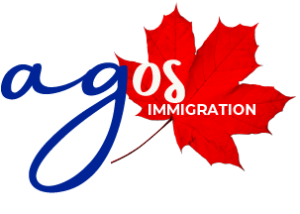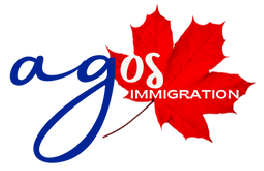Canada Immigration Calculator
Discover your eligibility for Canadian immigration programs and calculate your potential score based on your profile and qualifications.
Express Entry
Provinces Offering PNP Through Express Entry
Alberta
Manitoba
New Brunswick
Newfoundland and Labrador
Nova Scotia
Ontario
Prince Edward Island
Northwest Territories
Nunavut
Yukon
CRS Score Calculator
Calculate your Comprehensive Ranking System score and discover your Express Entry eligibility
Calculate ScorePNP Pathways Outside Express Entry

Quebec

Saskatchewan

British Columbia
Express Entry Guide
CRS Score Breakdown
Breakdown and Explanation
Canada uses the Comprehensive Ranking System (CRS) to evaluate Express Entry candidates. Your score determines your position in the pool, with higher scores increasing your chances of receiving an invitation to apply for permanent residence.
Total Points Available: 1,200
Points are awarded based on your skills, experience, language abilities, and other factors that help you succeed in Canada.
If You’re Applying Without a Spouse/Partner
If You’re Applying With a Spouse/Partner
Use our calculator below to find out your potential Express Entry score and learn about provincial nomination programs that might be right for you!
Benefits of Express Entry
1. ACCELERATED PROCESSING TIMES
- Express Entry is renowned for its efficiency, with most applications processed within six months or less.
- This rapid processing allows applicants to transition smoothly and quickly into their new life in Canada.
2. ENHANCED SELECTION OPPORTUNITIES
- The Comprehensive Ranking System (CRS) evaluates candidates based on age, education, work experience, and language proficiency.
- High CRS scores increase the likelihood of receiving Invitations to Apply (ITAs) for permanent residency, especially for candidates with skills in demand.
3. ACCESS TO A THRIVING JOB MARKET
- Canada’s robust economy offers numerous job opportunities across various industries.
- Permanent residents have the right to work anywhere in the country, providing flexibility and access to a wide range of employment options.
4. PATHWAY TO CANADIAN CITIZENSHIP
- After obtaining permanent residency, individuals may be eligible to apply for Canadian citizenship after meeting residency and other requirements.
- This grants additional rights, including the ability to vote and access to consular services abroad.
5. ACCESS TO PUBLIC HEALTHCARE AND EDUCATION
- Permanent residents benefit from Canada’s publicly funded healthcare system, ensuring essential medical services are accessible.
- Additionally, Canada boasts a high-quality education system, with students often achieving top performance in international assessments.
6. SUPPORTIVE SETTLEMENT SERVICES
- Canada invests significantly in settlement services, spending approximately $1.7 billion CAD annually to support newcomers.
- These services assist immigrants in adapting to their new environment, finding employment, and integrating into Canadian society.
Program Categories Under Express Entry
FEDERAL SKILLED WORKER
For individuals with skilled work experience in certain occupations.
FEDERAL SKILLED TRADE
For individuals who have hands-on expertise in a specific trade or occupation that requires specialized skills and training.
CANADIAN EXPERIENCE CLASS
For individuals who have gained skilled work experience in Canada.
A portion of the Provincial Nominee Programs (PNPs) are aligned with the Express Entry program, but candidates still must be eligible under one of the three federal programs in order to enter the pool of candidates.
Federal Skilled Worker Program (FSWP)
Are you a skilled professional looking to immigrate to Canada? The Federal Skilled Worker Program (FSWP) could be your pathway to permanent residence.
Check Your Eligibility for Federal Skilled Worker Program
The FSWP is designed for skilled workers with foreign work experience who want to immigrate to Canada permanently. Find out if your occupation qualifies, calculate your points, and see the latest draw results for skilled workers like you.
Official Government of Canada Resource – Immigration, Refugees and
Citizenship Canada (IRCC)
Who Are Skilled Workers?
Canada recognizes a wide range of skilled occupations across different TEERS, categorized under the TEER (Training, Education, Experience, and Responsibilities) system.
Management
Professional
Mid-Skilled
Intermediate
Who Should Apply?
Professionals and skilled workers around the world who want to immigrate to Canada permanently can do so through the Federal Skilled Worker Program. Candidates can apply with their spouse/partner and dependent children.
In 2025, candidates with the following profiles have the strongest prospects:
- Canadian Skilled Work Experience: At least one year of Canadian skilled work experience, combined with Canadian education and high proficiency in English or French.
- Specialized Occupations: Work experience in healthcare or trade occupations, accompanied by high language proficiency and at least a bachelor’s degree.
- Strong Language and Educational Background: Moderate to high proficiency in English and French, coupled with a bachelor’s degree and three years of skilled work experience.
It’s essential to recognize that the Express Entry system is dynamic, with criteria and priorities subject to change.
Eligibility Criteria
Work Experience (Maximum 15 Points):
At least one year of continuous full-time skilled work experience in a NOC skill level 0, A, or B occupation.
Additional points are awarded for more years of experience.
Age (Maximum 12 Points):
Points are allocated based on age at the time of application.
Candidates aged between 18 and 35 receive the maximum points, with the score decreasing incrementally for older applicants.
Arranged Employment in Canada (Maximum 10 Points):
A valid job offer from a Canadian employer can earn points.
The offer must be for continuous, paid, full-time work in a NOC skill level 0, A, or B occupation.
Adaptability (Maximum 10 Points):
Factors such as the applicant’s or spouse’s previous study or work experience in Canada, arranged employment, or having relatives in Canada can contribute to adaptability points.
Comprehensive Ranking System
Once you’re in the Express Entry pool, the Comprehensive Ranking System (CRS) scores your profile out of 1,200 points based on key factors:
Capital Factors
- Age
- Education
- Official Languages
- Canadian Work Experience
- Spouse Factor (up to 40 points)
Transferability
- Education + Language or Work Experience
- Foreign Work Experience + Canadian Experience or Language
- Certificate of Qualification (Trade Occupations only)
Points
- Provincial Nomination
- Canadian Study Experience
- Siblings in Canada
- French Language Skills
What Is A Competitive Score?
A competitive CRS score is essential for receiving an Invitation to Apply (ITA) for permanent residence; however, it’s important to note that the minimum required score fluctuates with each draw, based on the number of candidates in the pool and Canada’s immigration targets.
550+ Points: Highly Competitive Profile
A CRS score exceeding 550 is considered exceptionally strong. While an invitation is not guaranteed, candidates in this range are well positioned to receive an ITA. Additional measures, such as optimizing education credential assessments or maximizing spousal points, may further strengthen the profile.
400-499 Points: Getting Better
Candidates in this range can shoot up the rankings with some seemingly minor improvements that can have a big effect, especially when it comes to language (CLB 9 or better for all abilities is the goal!). In this range, candidates may be invited through category based draws. There may also be additional PNP options for candidates.
300-399 Points: Opportunity Through Provincial Nominee Programs (PNPs)
Certain provinces, notably Alberta, have previously issued invitations to candidates within this range through their PNP streams. Receiving a provincial nomination results in an additional 600 CRS points, effectively securing an invitation in a subsequent Express Entry draw.
0-300 Points: Consider Alternative Pathways
Candidates within this range, particularly those without Canadian skilled work experience, may face challenges in receiving an ITA through Express Entry. Exploring other immigration programs—such as employer-driven streams or provincial initiatives may offer more viable options.
There are several effective strategies for increasing a candidate’s CRS score, including enhancing language proficiency, accumulating additional skilled work experience, pursuing higher levels of education, or securing either a valid job offer or a provincial nomination from a Canadian province or territory.
Recent Draws For 2025
View the latest Express Entry draw results and historical data
Official Express Entry Draw Results – Click Here
Access comprehensive draw history, CRS cut-off scores, and invitation rounds directly from Immigration, Refugees and Citizenship Canada (IRCC)
Official Government of Canada Resource
Expected Draws For 2025
There are several effective strategies for increasing a candidate’s CRS score, including enhancing language proficiency, accumulating additional skilled work experience, pursuing higher levels of education, or securing either a valid job offer or a provincial nomination from a Canadian province or territory.
Program Based Draws
- Canadian Experience Class (CEC): 500+
- Provincial Nominee Program (PNP): 690+
- All-Program / General Draws: 550+
Category Based Draws
- French Language Proficiency: 400+
- Healthcare Occupations: 430+
- Skilled Trades: 435+
It is important to note that CRS cut-off scores fluctuate with each round of invitations.
How To Get Ready?
To successfully apply under Canada’s Express Entry system and secure a competitive CRS score, candidates must approach the process with a clear strategy, thorough preparation, and a commitment to optimizing every aspect of their immigration profile.
Proactive Preparation
- Passport or travel document
- Language test results
- ECA report
- Work experience letters, clearly detailing job duties and periods of employment
- Proof of funds
How To Improve Your CRS Score?
Candidates can significantly strengthen their Express Entry profiles by strategically targeting specific factors under the Comprehensive Ranking System (CRS). Below is a detailed breakdown of the areas where candidates can gain additional points:
| FACTORS | SUB-FACTOR | ADDITIONAL INFORMATION | PROOF REQUIRED | POTENTIAL POINTS INCREASE |
|---|---|---|---|---|
| Sibling in Canada | N/A | Sibling must be a Canadian citizen or permanent resident living in Canada. | Passport or PR card; proof of residence; proof of relationship. | 15 points |
| Education | Obtain an Educational Credential Assessment (ECA) | Required for foreign education credentials. Applicable to CEC and FSTC candidates as well. | ECA report from a designated organization. | Up to 250 points (150 for education + 100 for skills transferability) |
| Previous study in Canada (1–2-year program) | Must have successfully completed a Canadian post-secondary program of at least 1 year. | Degree, diploma, or certificate. | 15 points | |
| Previous study in Canada (3+ years / Master’s / Professional Degree / Doctorate) | Completion of a longer or advanced study program in Canada. | Degree, diploma, or certificate. | 30 points | |
| Language | Improve first official language scores | Higher proficiency (especially CLB 9 or above) boosts CRS significantly. | Updated IELTS, CELPIP, PTE Core, TEF, or TCF results. | Up to 162 points (112 for language + 50 for skills transferability) |
| Prove ability in a second official language | Additional points for bilingual proficiency; French speakers may receive bonus points. | Language test results. | Up to 74 points (24 for second language + 25/50 French bonus) | |
| Work Experience | Additional skilled work outside Canada | Extra work experience enhances points under skills transferability if combined with strong language skills or Canadian experience. | Self-declared initially (reference letters required later). | Up to 100 points |
| Skilled work experience in Canada | Each additional year of Canadian skilled work adds points (up to 5 years recognized). | Employment records and tax documents. | Up to 180 points (80 for work alone + 100 for skills transferability) | |
| Provincial Nomination | N/A | A nomination from a province or territory guarantees a significant CRS boost. | Official Provincial Nomination Certificate. | 600 points |
| Spouse/Partner Factors | Education | The spouse’s education credentials can contribute to the overall score. | ECA or proof of Canadian education. | 10 points |
| Language Proficiency | Strong language ability of the spouse enhances the principal applicant’s profile. | Language test results. | 20 points | |
| Canadian Work Experience | Even one year of Canadian work experience by the spouse can add points. | Employment records and tax documentation. | 10 points | |
| Principal Applicant Role Review | If the spouse/partner has a stronger profile, they should be considered as the principal applicant. | Creation of a new Express Entry profile. | Variable increase |



